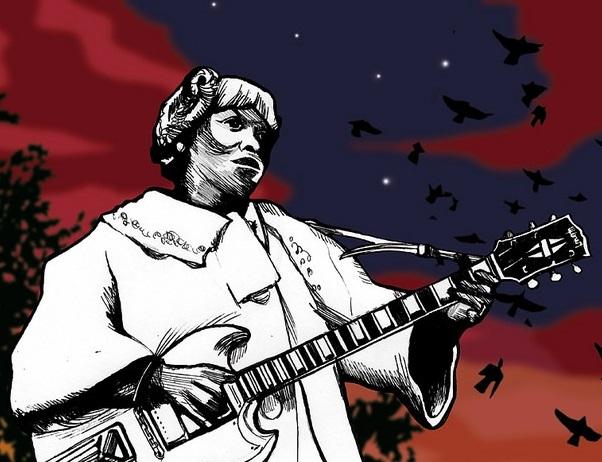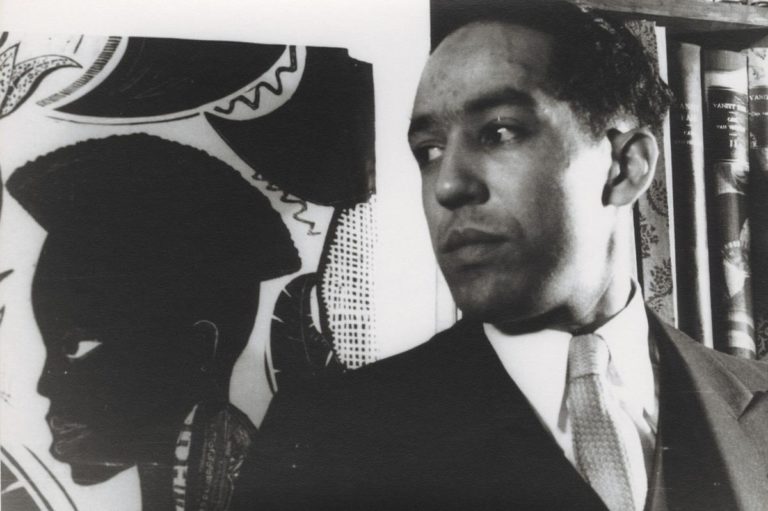
"In 1963 we will be a hundred years free. Have you not forgotten that you were once a slave? Is it a memory you do not want to remember?
The quote above is from Langston Hughes, a poet, columnist, and a central figure of the Harlem Renaissance. Hughes wrote at a time where African-Americans were re-claiming their heritage and identity to unify the black masses for a political gain.
Because Africans were forced to come to America with nothing, it is assumed that they did not have anything with them, so they could not have developed secular music. The origins of folk music usually start with white musician Joel Walker Sweeney in the 1830s, with the development of the banjo.
Yet, all of those things are myths. Africans still had their culture and used music as a means of protests and to ease the pain of their suffering, and folk music had been ingrained in the lives of many Africans before the genre became exclusively white.
Most of the folk musicians that sung about civil rights during the Harlem Renaissance were not black, and made a profit of folk music, inciting Hughes to write about what folk music is, how people used it, its remembrance, and whether it should be used as a source of entertainment.
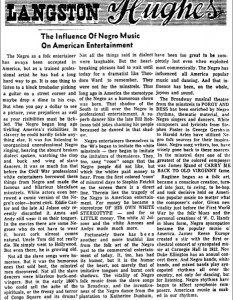
So why don’t we answer those questions?
Origins and Influences
The song above was based on an incident recounted in The Slaves’ War, written by Andrew Ward, and begins this dive into the history of American folk music. Many of the timeless songs created today was spurred because of the suffering of black people, forced to labor in a country foreign to them. Black people had to adjust to new surroundings and new customs and slowly began to combine the culture of the Europeans with what they had brought from Africa, a process called acculturation. Folk music was devised at a necessary time, where the forms of expressions for blacks were limited.
The banjo is a staple instrument of folk music, however, the banjo was not incepted in 1830, but rather, around 200 years ago, where Richard Jobson, a British trader, wrote of an object made of “a gourd with a neck fastened to it and up to eight strings,” surely a prototype for the instrument now called a banjo;
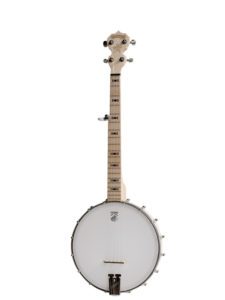
The primary influence that derives from folk music is not necessarily its instrumentation, but how it shed light to the sufferings, African-Americans were going through and was one of the first genres to do so. Orally, Africans spread their stories and frustrations through songs; music presented the only opportunity to for some.

So when Hughes said that it was disheartening to see folk music being taken or granted, I understood his sentiment. It was incepted at a time of need and seeing the change from then until now can leave one a little disappointed. However, should folk music be used as entertainment? Scroll down further for my complete opinion!
Elements of Folk
Pattin Juba
Pattin juba is rhythmic body percussion used by slaves to accompany singing or dancing. The pattin juba includes hand clapping, foot stomping, the hands striking the knees and shoulders, and other movements.
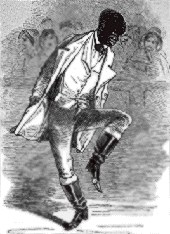
Djembe
A djembe or jembe is a rope-tuned skin-covered goblet drum played with bare hands, originally from West Africa. Sometimes, the djembe was used to keep the rhythm during work to quicken the time or the work pace.
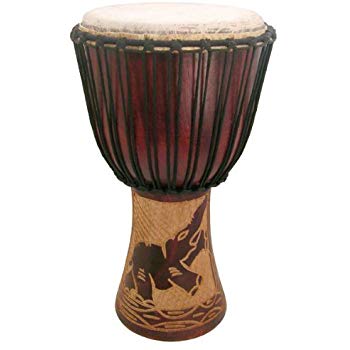
Banjo
A banjo is an instrument of African origin, originally with one to six strings and a neck running parallel to a gourd body
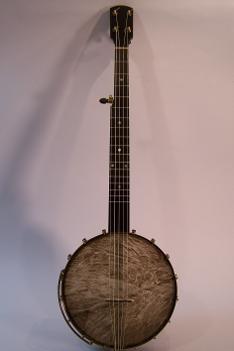
Field Holler
A field holler or cry is short florid improvised melody sung by an individual working in the fields.

Performers
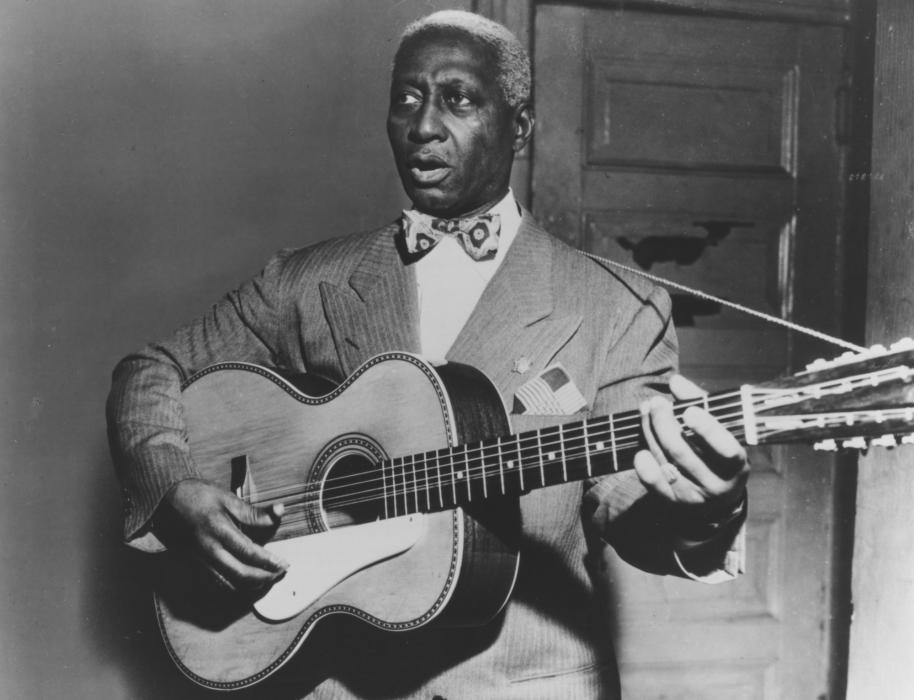
One cannot mention folk music without mentioning Huddie Ledbetter (a.k.a. Leadbelly). Born in 188, Leadbelly was known to have a sound that was so original, it was beyond comparison. Integrating country, blues and other genres into his music, Lebette used his songs, twice, to get him out of murder charges. The song “Goodnight Irene,” became a huge hit for him, and it would later be named the most influential folk song in history.
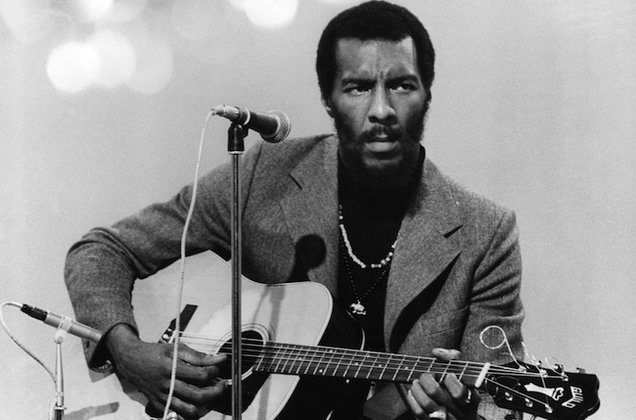
Richie Havens, born January 21, 1941, is very popular in more modern folk music. The song “Handsome Johnny,” brought him much success. He opened for Woodstock in 1969, and his rendition of “Sometimes I Feel Like a Motherless Child,” became the highlight of the festival. His unique tone of voice was loved by all.
Should Folk Music be Used for Entertainment?
Let’s turn the attention back to the main question: Should folk music be used as a source of entertainment? As we saw, it is obvious Langston Hughes does not believe so, and to be honest, I am inclined to agree with him.
Though there is a prominent influence of White European music, folk music has retained African-American characteristics. However, this is a time before recordings, so the only way present to record folk music was to use a notational system that was designed for Europeans. I believe this is the reason for the genre to be switched to be associated with mainly white people. So I can see the frustration Hughes had when he lamented how the Harlem Renaissance featured white folk singers singing about something they don’t understand. They were essentially profiting off the black experience, which is not an unusual thing to hear about, but it is disheartening.

Sometimes, it escapes one’s mind that history is often told from a white perspective. I am shocked to have found Hughes’ piece on folk music, as an African-American perspective on African-American music was very scarce back then. I’m sure not all of the folk singers singing back then meant no harm, but even so, they contribute to that ongoing narrative. So in theory, did they do more harm than good? Who knows?
However, I believe this is a part of a bigger picture and yet another example of not giving credit to where it is due. I mean, before reading this, did you know folk music had an African origin? The disparity of the known and unknown causes essential history to be lost.


Going back to Hughes quote, I believe he was questioning whether folk’s authenticity had been lead astray. The evolution of African-American folk music being a genre for the people, to express their frustrations with the social system, to popular entertainment is something that is controversial in itself.
I believe music is for everyone, and everyone is entitled to create their own artistic expression however they want to. Whether the artist wants their music to be commodified is their choice. That being said, the origin of music, especially if rooted in such a horrible period of time, should be mentioned and acknowledged.
But you heard my opinion. Let me yours in the comments below!

